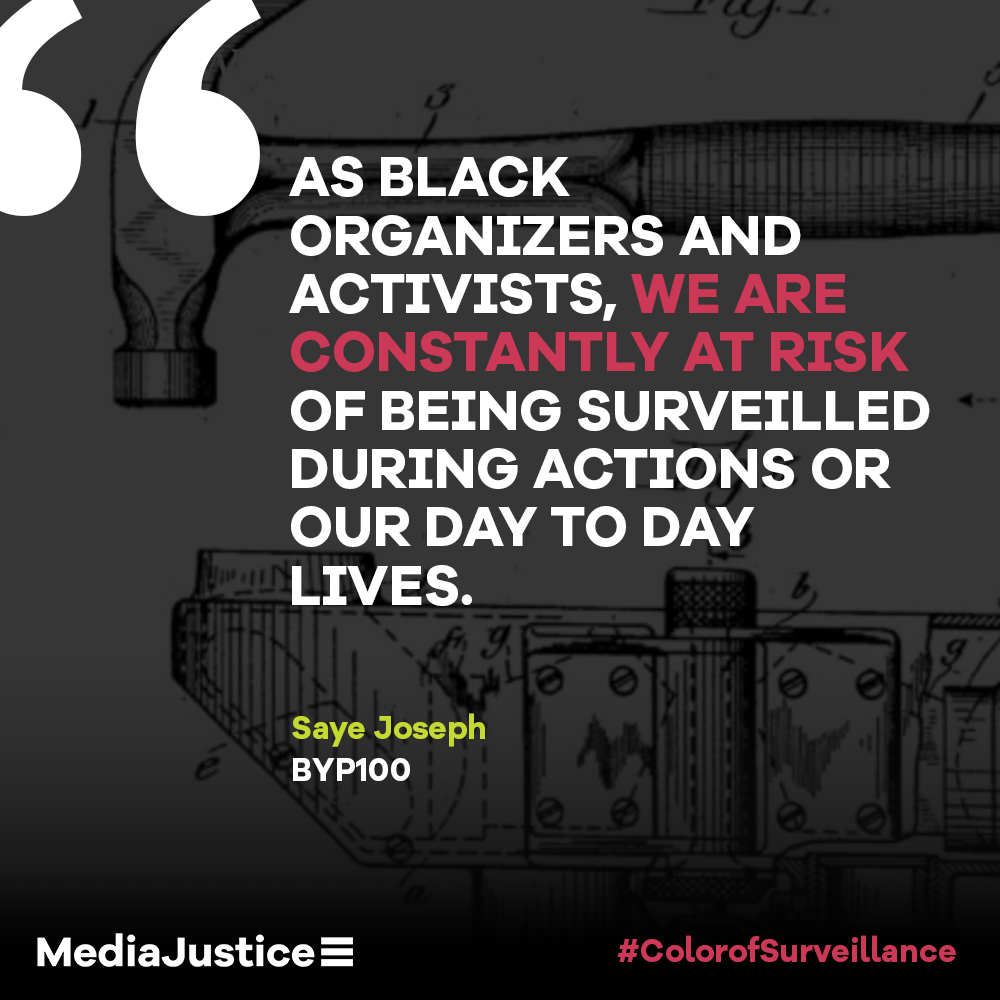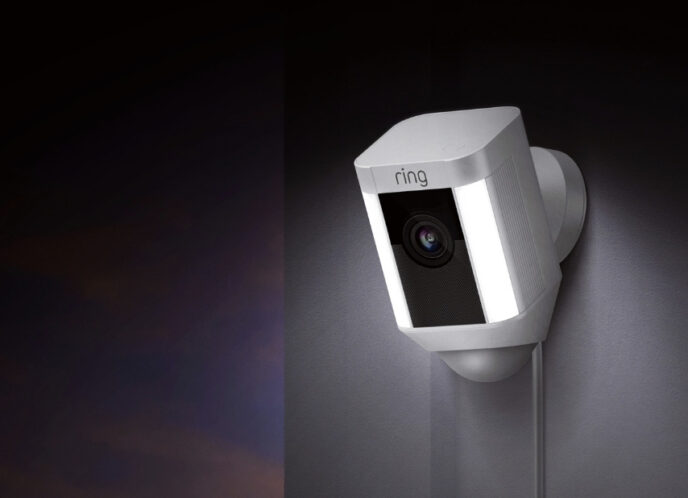With the rapid spread of digital prisons and social media monitoring in today’s digital economy, the tracking of workers has gone high-tech — most impacting Black and brown sex workers, activists, and others living on low incomes in the digital age. This expansion of surveillance is chilling dissent and preventing movements from base-building and winning liberation.
At the same time, this type of monitoring is nothing new. For example, the FBI’s surveillance of Black freedom fighters organizing to end police violence today almost exactly mirrors what the Black Panther Party experienced in the 1960s, while trying to feed our communities who didn’t have access to food and other basic resources due to poverty and poor working conditions.

Because the intersection of labor, technology, and surveillance critically impacts our campaign work at MediaJustice, we are bringing a delegation of Black and brown grassroots activists to this year’s Color of Surveillance conference in Washington, D.C this Thursday, November 7. This year’s conference is focused on the monitoring of poor and working class people and our delegates will speak specifically to the role race, gender and economic status have and continue to play in justifying the high-tech surveillance of workers of color.
On November 7, tune in LIVE to conference conversations by:
- Following @mediajustice on Twitter, Instagram and Facebook for live updates and commentary from our delegates themselves.
- Joining the online conversation using #ColorOfSurveillance and tagging @mediajustice.

While we work to abolish racial capitalism altogether, Black people and other people of color should be able to work and organize as we want to, without the fear of surveillance or being criminalized via monitoring. Congress and Big Tech can enable this vision by enacting better protections for Black and brown workers and passing legislation — including ending the use of pretrial electronic monitoring — which might prevent further criminalization. With these protections, workers can live freely and we can build a greater understanding that surveillance in the digital age is not necessary or neutral, but an extension of long-standing racism, sexism, classism, and other forms of oppression.



